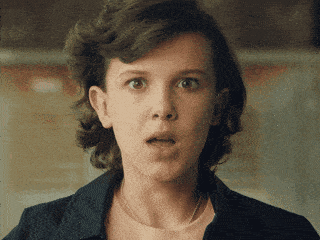Contrary to popular belief, gifts in wills don’t fall from the sky!

What a crazy thought, isn’t it? But in all seriousness, it’s important to know that when it comes to gifts in wills, the solicitation process is happening every single day, through every single interaction with donors. It happens through printed marketing, appeals, telephone calls, events, and so on.
This doesn’t take away from the fact that gifts in wills professionals still have to actively solicit donors, just like they would for middle or major gifts. However, there are some distinct differences in the approach. Namely helping the donor feel comfortable and connect through their autobiographical memory. In extremely simple terms, the autobiographical memory is the part of the brain that makes the person think back about where they were or what they were doing at a particular point in their life. To learn more about this, I strongly recommend you read Dr. Russell James’ book Inside The Mind Of The Bequest Donor.
Objections are a normal part of the solicitation process – be it at the beginning of the legacy pipeline or anytime throughout the engagement process. What are some of those objections and how can we overcome them? Let’s explore some of the top objections and how you can dismantle them.
I’m not as wealthy as those folks who make those huge gifts you always read about.
This is a very typical objection for gifts in wills because donors only hear about those big legacies or major gifts that make the rounds in the media when a wealthy person makes a donation.
(1) Most of our gifts in will donors are just like you. In fact, the majority of our legacies come from people like you – people who care and believe in the work we have done and will continue doing for future generations.
(2) There is no outlay of cash at the moment. Your gift will be realized based on your accumulated assets that will be part of your estate. Even a 3% gift is significant to impact the organization (or program or future generations).
I really love the organization but I’m concerned about having enough money to meet my needs in case I get sick in the future.
This is the most common objection and we definitely want the donor to feel secure in their decision.
Of course, that’s completely understandable, you need to plan for unknowns. We want you to consider a gift in your will for Organization ABC after you have taken care of your needs and those of your loved ones. We certainly wouldn’t want you to be without anything
I will need to see what my financial planner and accountant have to say. I never do anything without their advice.
Of course we want you to visit with your advisors. It’s important to us that you receive good counsel and make your decision in the context of personal and family priorities relative to taxes and finances. All we really hoped to accomplish today was to explain how you can continue supporting the (program or organization) that you’ve loved and cared for so long.
My accountant/financial advisor says I shouldn’t leave a gift in my will.
There is still so much work to do with advisors who don’t understand the power of gifts in wills.
It’s important to us that you not do anything that doesn’t make sense from a tax standpoint. Such details, while important, are not what we hope to resolve today. Rather, what we hope to ascertain your shared enthusiasm for this way for your giving to be remembered in perpetuity. How do you feel about what we discussed?
I’ll need to think this over. It’s a big decision. Why don’t you give me some time and I’ll get back to you?
This is entirely normal. You should do some probing about their understanding of and passion toward the opportunity.
Of course we understand your need to consider all we’ve discussed. In fact, we really want you to take your time to think about everything. What’s your initial reaction to what we discussed and the way your gift can impact (insert cause or program) for future generations? How do you feel about what we have discussed here today? What questions do you have and what would be the key things you need to consider?
I’ll need to talk it over with my spouse/partner/friend.
Technically, you would have encouraged the donor to invite someone they trust to join them during the meeting.
Yes of course! We are eager to have you talk it over with ___________.
We were sure you would want to do this and perhaps it would make sense for all of us to get together early next week.
The key to addressing objections is to keep your cool, listening carefully to what the donor is saying (read between the lines) and then respond from a place of empathy and understanding. If you’re stuck and don’t know how to respond, no one will fault you for saying something as simple as “I wanted to explore this gift option with you and I want you to take your time to consider what we discussed. How about we chat again in a week’s time.” It’ll make the donor feel listened to and secure that you aren’t trying to pressure them into anything. Plus it’ll buy you time to regroup.
These are some of the most common objections with suggested responses. Of course, now it’s up to you to make them your own and to find ways to engage with donors so that you never have to use these answers! If you have faced other objections, please pop them in the comments section below 👇👇


